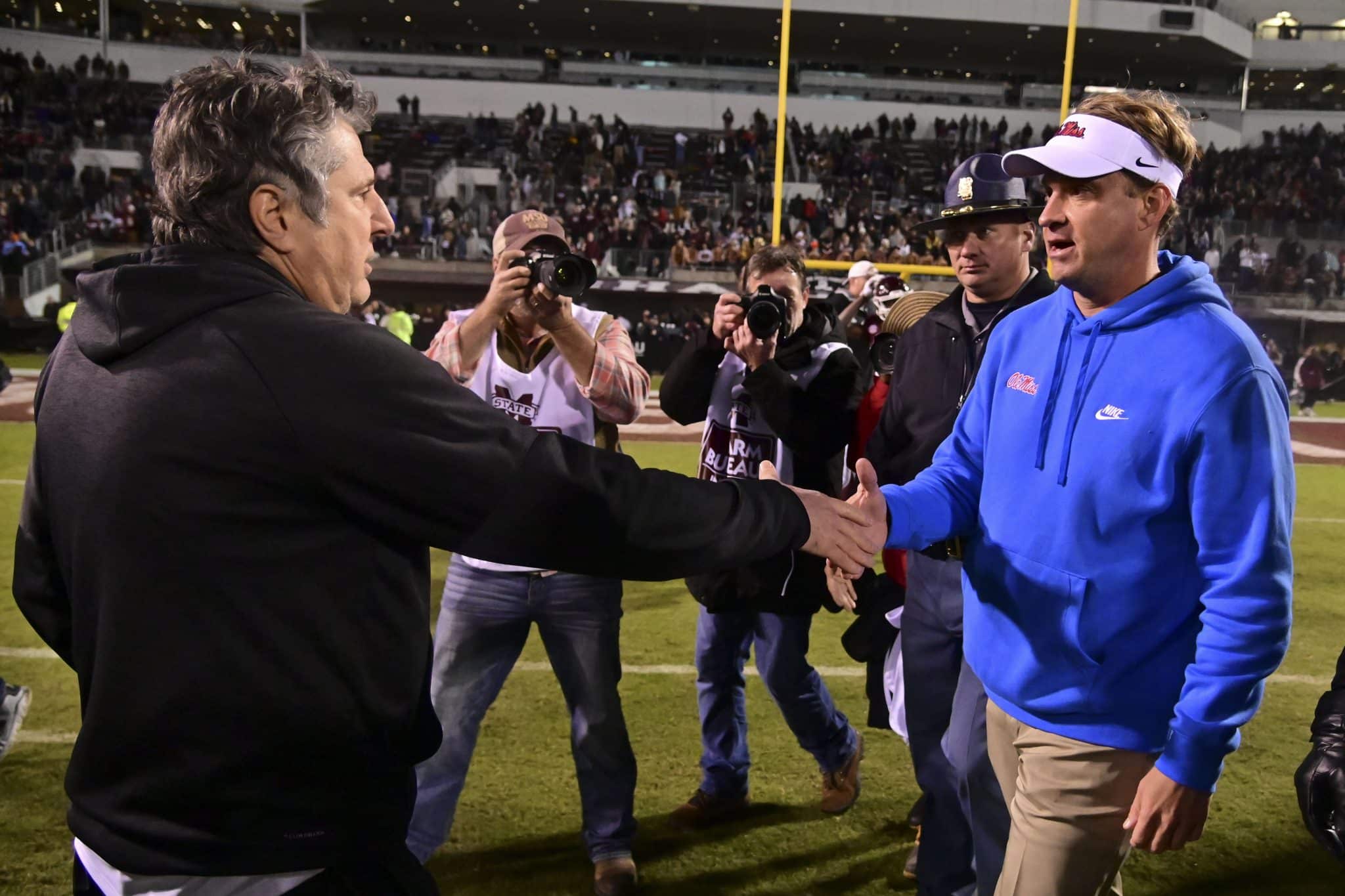
Ole Miss vs. Mississippi State: 3 keys and a prediction for Egg Bowl
By Les East
Published:
It’s Egg Bowl time once again.
Mississippi State and Ole Miss.
Thanksgiving night at Vaught-Hemingway Stadium.
It’s the 119th time these Magnolia State rivals have met. It’s the 95th time the Golden Egg has been stake.
Every meeting has its own personality. These Rebels (8-3, 4-3 SEC) are No. 20 trying to win their 3rd straight in the series.
Ole Miss coach Lane Kiffin and his team are working through the annual speculation of what school might entice him away from Oxford. (This year it’s Auburn.)
Bulldogs coach Mike Leach is trying win the Egg Bowl for the first time and silence whispers about whether it’s time for him to start looking for enticing offers elsewhere.
Both teams are hoping to enhance their post-season bowl opportunities with a win Thursday night.
But this is a big bowl in and of itself.
Here are 3 keys to the Egg Bowl — and a prediction.
1. Ball security
Turnovers are a major factor in every game. But they’re worthy of particular attention in this game because these teams have contrasting track records with turnovers this season.
State leads the SEC in interceptions (14) and is 2nd is takeaways (20). Ole Miss is 8th in takeaways with 14.
If either team has a decided advantage in takeaways — not just in number but quality of opportunities gained/lost — it could easily tilt the decision between the pretty evenly matched 8-3 Rebels and the 7-4 Bulldogs.
2. Red zone production
Kiffin zeroed in on this angle during his Monday news conference.
Ole Miss’ 42-27 loss at Arkansas last Saturday was largely decided by a disparity in red-zone success.
The Rebels entered the red zone 5 times but scored just 2 touchdowns. They made 1 field goal, missed another and had a turnover on downs.
The Razorbacks entered the red zone 4 times and left with 4 touchdowns.
That’s how Ole Miss managed to gain 703 yards (200 more than Arkansas) and lose in a game that wasn’t particularly close.
State leads the FBS in points per red-zone drive (5.19) and red-zone touchdown percentage.
If either team has a clear edge in red-zone production, it’ll probably been the difference-maker.
3. Rogers vs. Rebel runners
Leach’s offense — and his whole program really — is built around quarterback Will Rogers, whose ability to survey the defense, make wise decisions and deliver the ball accurately drives the train. Of course, he needs time to operate, and his receivers have to get open, catch the ball and produce yards after the catch.
But it’s Rogers who orchestrates the whole deal.
Kiffin’s offense — and his whole program to a large degree — is built around a prolific running game, led by the running-back tandem of Quinshon Judkins and Zach Evans as well as quarterback Jaxson Dart. Of course, they need holes to run through and Dart and the passing game have to provide some balance.
But it’s the running game’ productivity that enables Ole Miss to thrive.
The bigger the game, the bigger the importance of the performance of the bigger players.
If either the State passing game or the Rebels’ running game is better than the other at matching or surpassing its normal high performance, it could make the difference.
Prediction
So, what will make the difference?
On paper these key factors seem to provide a net favorability for the Bulldogs (7-4, 3-4), but games aren’t decided on paper. They’re decided by which team plays better during the 60 minutes.
Any advantages State might have in takeaways or red-zone productivity will be balanced by the Rebels’ big-play ability on offense and the defense’s ability to get sacks.
It will be a close game and the Bulldogs will be passionate about ending the brief losing streak.
But it’s Senior Night and they’re retiring Ben Williams’ jersey.
And it’s the Egg Bowl, so the Rebels will match the Bulldogs’ passion.
Finally, it’s Kiffin vs. Leach.
Final score: Ole Miss 30, State 27
Les East is a New Orleans-based football writer who covers LSU for SaturdayDownSouth.com. Follow him on Twitter @Les_East.







